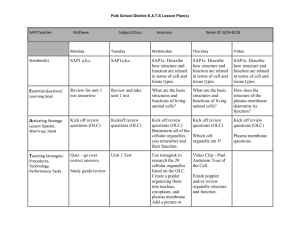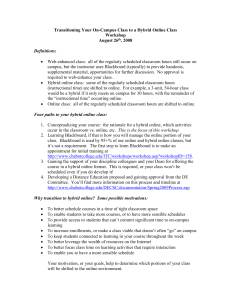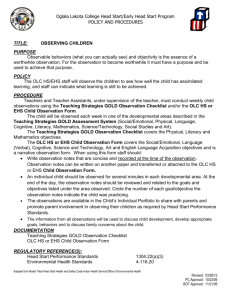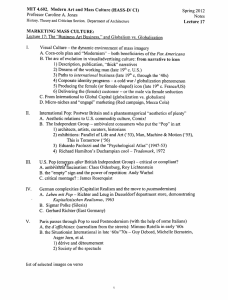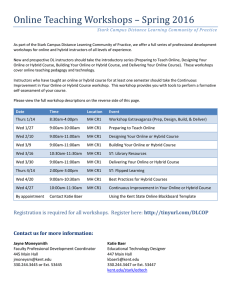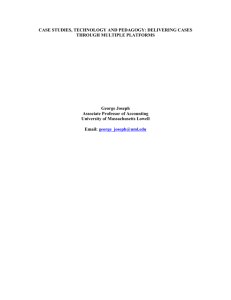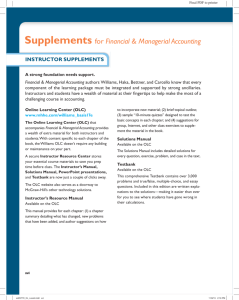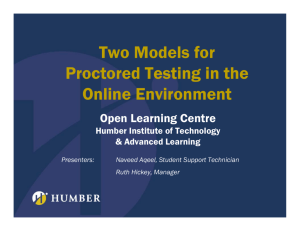II.A.31 - Southwestern College
advertisement
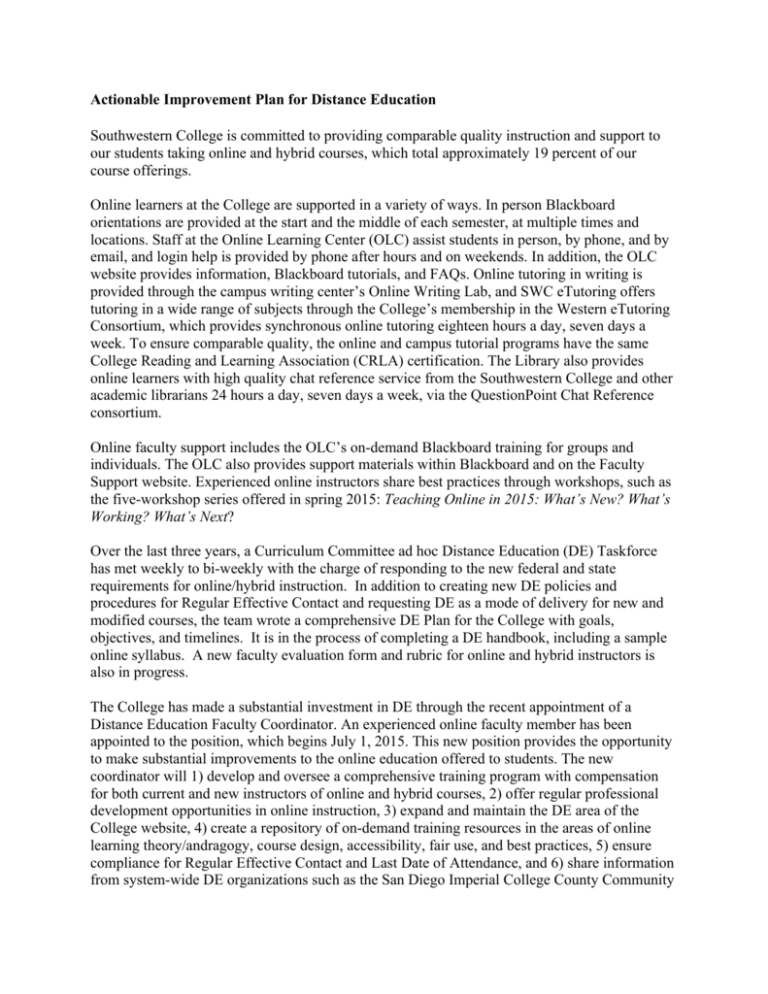
Actionable Improvement Plan for Distance Education Southwestern College is committed to providing comparable quality instruction and support to our students taking online and hybrid courses, which total approximately 19 percent of our course offerings. Online learners at the College are supported in a variety of ways. In person Blackboard orientations are provided at the start and the middle of each semester, at multiple times and locations. Staff at the Online Learning Center (OLC) assist students in person, by phone, and by email, and login help is provided by phone after hours and on weekends. In addition, the OLC website provides information, Blackboard tutorials, and FAQs. Online tutoring in writing is provided through the campus writing center’s Online Writing Lab, and SWC eTutoring offers tutoring in a wide range of subjects through the College’s membership in the Western eTutoring Consortium, which provides synchronous online tutoring eighteen hours a day, seven days a week. To ensure comparable quality, the online and campus tutorial programs have the same College Reading and Learning Association (CRLA) certification. The Library also provides online learners with high quality chat reference service from the Southwestern College and other academic librarians 24 hours a day, seven days a week, via the QuestionPoint Chat Reference consortium. Online faculty support includes the OLC’s on-demand Blackboard training for groups and individuals. The OLC also provides support materials within Blackboard and on the Faculty Support website. Experienced online instructors share best practices through workshops, such as the five-workshop series offered in spring 2015: Teaching Online in 2015: What’s New? What’s Working? What’s Next? Over the last three years, a Curriculum Committee ad hoc Distance Education (DE) Taskforce has met weekly to bi-weekly with the charge of responding to the new federal and state requirements for online/hybrid instruction. In addition to creating new DE policies and procedures for Regular Effective Contact and requesting DE as a mode of delivery for new and modified courses, the team wrote a comprehensive DE Plan for the College with goals, objectives, and timelines. It is in the process of completing a DE handbook, including a sample online syllabus. A new faculty evaluation form and rubric for online and hybrid instructors is also in progress. The College has made a substantial investment in DE through the recent appointment of a Distance Education Faculty Coordinator. An experienced online faculty member has been appointed to the position, which begins July 1, 2015. This new position provides the opportunity to make substantial improvements to the online education offered to students. The new coordinator will 1) develop and oversee a comprehensive training program with compensation for both current and new instructors of online and hybrid courses, 2) offer regular professional development opportunities in online instruction, 3) expand and maintain the DE area of the College website, 4) create a repository of on-demand training resources in the areas of online learning theory/andragogy, course design, accessibility, fair use, and best practices, 5) ensure compliance for Regular Effective Contact and Last Date of Attendance, and 6) share information from system-wide DE organizations such as the San Diego Imperial College County Community College Association (SDICCCA) Subcommittee on Distance Education, California Community College (CCC) DE Coordinators, and the CCC Online Education Initiative. The College looks forward to building on existing accomplishments by implementing improvements in faculty training, resources, and evaluation in the coming year.

